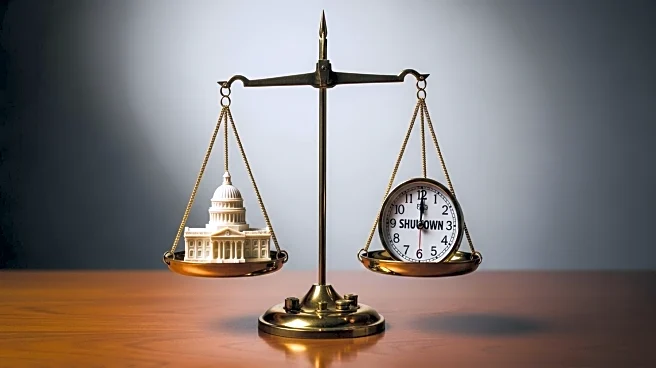What's Happening?
House Democrats are currently engaged in discussions to determine their strategy for the upcoming government funding deadline on September 30. During a closed-door meeting, they expressed the need to leverage the deadline to advance their priorities but have yet to agree on what those priorities should be. Concerns were raised about whether Senate Democrats would support a fight, given past instances where key Democratic senators backed a Republican-only spending bill. House Minority Leader Hakeem Jeffries emphasized the importance of having a viable endgame. The meeting concluded without a clear path forward, and with three weeks left, Republicans will need Democratic votes to avoid a shutdown, particularly in the Senate where they hold 53 seats but require 60 votes to pass a funding bill.
Why It's Important?
The ongoing debate among Democrats is crucial as it could impact the government's ability to avoid a shutdown, which would have significant political and economic consequences. A shutdown could disrupt government services and affect millions of Americans, potentially leading to political backlash against the party perceived as responsible. Democrats are divided on whether to pursue aggressive policy demands or take a more traditional approach, which could influence negotiations with Republicans. The outcome of these discussions will shape the political landscape and determine how effectively Democrats can leverage their position to achieve their policy goals.
What's Next?
Democratic leaders plan to meet with key members of their leadership teams and top appropriators to finalize their strategy. Some Democrats are considering demanding extensions of expiring Obamacare funds and proposing guardrails on President Trump's use of rescissions. The White House has indicated a preference for a less bipartisan approach, complicating negotiations. The next steps will involve determining whether Democrats can unite on a strategy and how they will engage with Republicans to avoid a shutdown.









